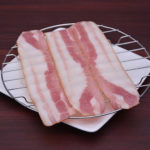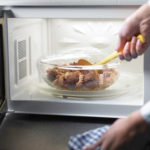Anyone who has cooked knows that when you boil or stew meat, you will see bubbles floating on the surface, sometimes more, sometimes less, and the bubbles can be dark or light. Many housewives believe that this is due to the use of chemicals in reared meat, the more industrially reared pigs, the more bubbles, and the pigs are not clean.
However, Prof. Nguyen Duy Thinh, from the Institute of Food Technology, University of Technology, has said in the media that the bubbles are not toxic and not caused by chemicals in reared pigs. The phenomenon of foaming when boiling or stewing meat is due to the protein in the meat and bones being secreted and then coagulated. This is similar to when we cook crab soup, the crab protein dissolves in the water and when heated, it rises and coagulates. The protein in the meat and bones also rises, but they are still in pieces so they do not coagulate as much as when cooking crab soup.
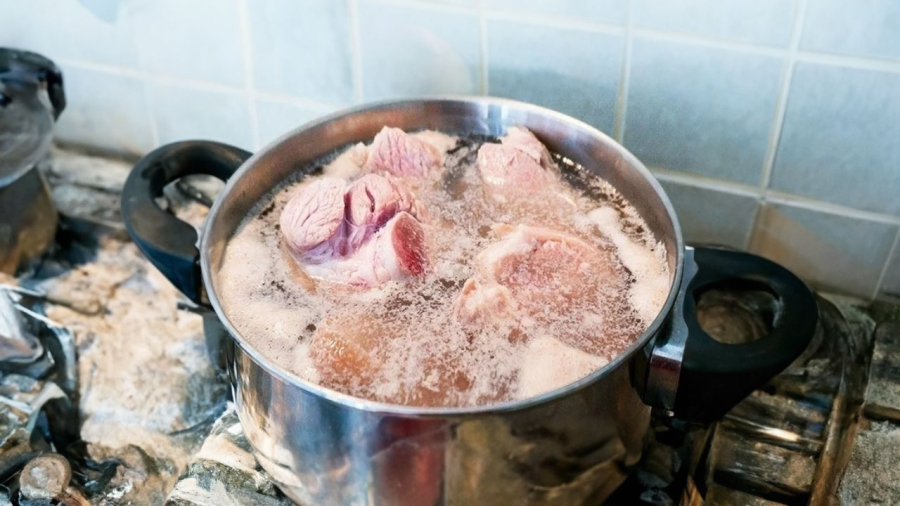
During the slaughter and transportation process, in addition to protein, meat can also stick to dirt. Therefore, when boiling, the dirt can adhere to this foamy layer. Therefore, this layer of foam cannot determine whether the reared pig is chemical-free or not.
Should the foam be removed?
In terms of aesthetics, this foam is the cause of the dish looking unappetizing, cloudy, and ugly. Moreover, they are also decomposed amino acids, so they often have a stronger odor. And they can also adhere to dirt and bacteria during the slaughter and transportation process.
So to make the dish more aesthetically pleasing, you should remove that foam. But using the foam to determine whether the meat is clean or not is incorrect. And that is why there is more foam at first and less foam later. That is because when boiling or stewing for the first time, there are more free proteins, fats, and secretions in the meat and bones, so they rise and coalesce more. When they are all removed, the proteins in the meat and bones do not break down anymore, so there is not as much foam.
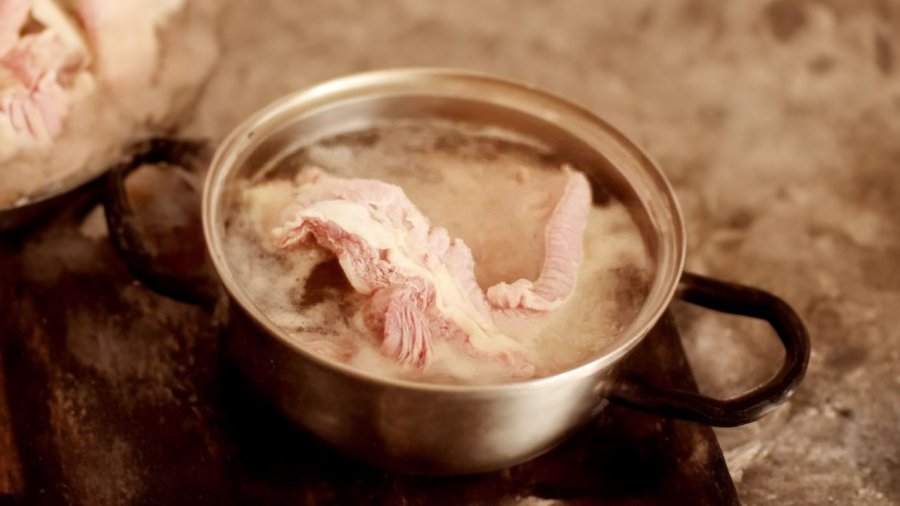
When boiling, if you smell a strange, fishy odor, it may indicate that the pig is fed with food or there is still a residue of antibiotics in the meat, so it smells fishy.
How to choose good meat and bones
When buying meat or bones, you should observe the products being sold. If the color is pale white or deep red, it indicates an abnormality.
When buying, you should press your finger on the meat and feel the elasticity. Elastic and non-leaking meat is fresh. Meat that is not elastic and leaks water is old, injected with water, or has been left in the freezer for a long time.
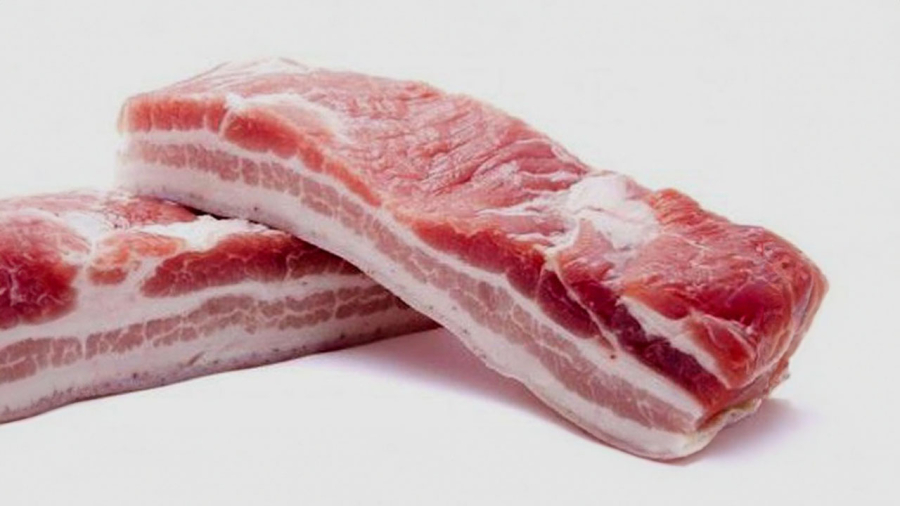
Observe the meat fibers. If there is too little fat, it indicates that they have been forced to gain weight. Moreover, when you regularly go to the market, you should buy meat from a trusted store and immediately inform them if the meat is sour or not tasty.
How to boil meat to be tender and odorless
When you bring the meat home, you can wash it with diluted saltwater to make the meat cleaner.
Then you can boil it in 2 ways:
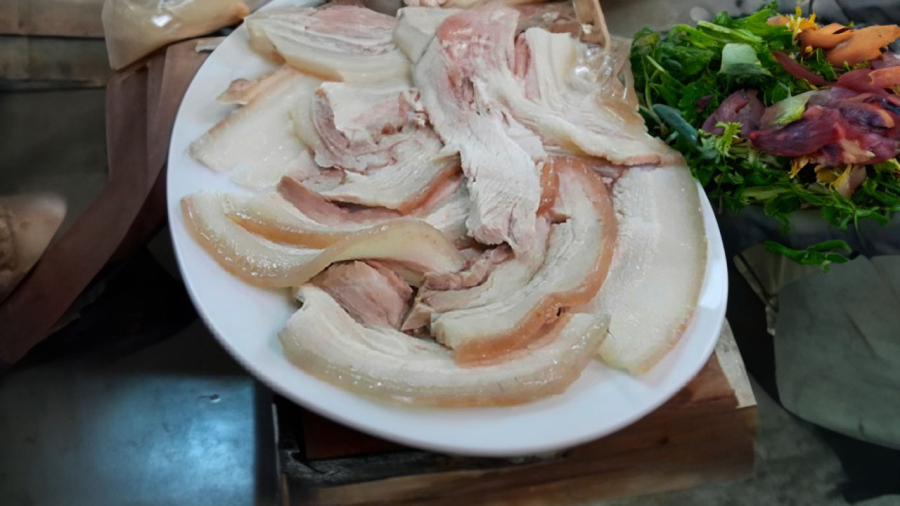
Method 1: Boil the meat to keep it tender and sweet: Bring a pot of water to a boil, then add the meat, let it boil again, and then simmer the heat so the meat cooks slowly. When the boiled meat is tender, take it out and put it in a bowl of cold water with ice to help the meat retain its beautiful color. This method retains more sweetness in the meat.
Method 2: Boiling meat from cold water: You put the meat in a pot and then bring the pot to a boil, lower the heat and wait for the meat to cook. With this method, the protein in the meat secretes more water, so the water is sweeter and can be used for cooking soup.
If you want the boiled meat to be flavorful, you can add a few slices of ginger and roasted onions.




























